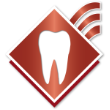Airway -- The Breath of Life
If you clench, grind, or feel stressed out, the information below can save your life.
It's well-known that snoring and sleep apnea are signs of a compromised airway. But did you know that most people have a constricted airway and don't even know it because they don't snore? If you don't snore, the topic of nighttime breathing and "airway" may be new. But a constricted airway is very common. And the result can be a long list of serious health problems like high blood pressure and autoimmunity. Proper consideration given to your "airway" is a critical component of your biological journey.
The Signs of a Constricted Airway

In dentistry, many common signs too often get ignored or explained away. For example, gum recession and tooth erosion — are they really caused by brushing too hard? The truth is they're probably caused by a constricted airway. How about worn or chipped teeth — is the cause really just stress, and is the solution either a yoga mat or a dental nightguard? No, it's usually airway.
Do you wake up in the middle of the night to go to the bathroom? Is it just because you "drank a lot of water" that day? Or is that because of a constricted airway too?
You may have heard that cancer prefers an acidic body, and tends to shy away from an alkaline body. So is the solution to drink alkaline water? Doubtful. The solution is, you guessed it, opening up the airway. Breathing freely keeps you alkaline.
The Modern Face


Over the last 400 years, the shape of our face has changed quite a bit. Sure it's been changing for tens of thousands of years, but only in the last 400 years did our jaws shrink at record speed. This happened because of diet, cooking, nutrition, and pollution, which all caused epigenetic changes. Epigenetics results in fast, generation-to-generation changes in our form and function without the DNA changes caused by normal long-term evolution.
The current position of our jaws gives us our modern esthetics, but it causes our nose to protrude beyond our jaws and results in a position of the tongue which is too far back and close to the back of the throat. The tongue then encroaches on the airway space. This decreases airflow and compromises our breathing efficiency, especially at nighttime. During restful sleep, our peripheral muscles go limp, including the jaw. The jaw and tongue fall back, restricting airflow.
Health Effects

When oxygen levels dip, the brain will detect the imbalance and force a response to help keep us alive. After all, if oxygen levels are steadily decreasing, we're suffocating! The response is an adrenaline rush to help us breathe. The adrenaline puts us into a panic, brings us out of deep sleep, tenses up the muscles, and moves the tongue out of the way of our throats. This tension also results in clenching / grinding. The feeling of "panic" occurs even during sleep.
Imagine feeling the panic of seeing a grizzly bear approach you over and over all night long while you're sleeping. Of course you're going to wake up feeling unrested, tense, and anxious. Furthermore, because your adrenal glands have been working all night instead of resting, they become depleted. With adrenal fatigue, your body struggles to support you the next day when cortisol, the coping horming, is needed. This results in chronic stress and anxiety.
Also consider that relaxed sleep is meant to be a parasympathetic state ("rest and digest"). During deep sleep, our body is restoring, cleaning, digesting, and preparing for the next day. It makes digestive enzymes and stomach acid. It stores the day's meaningful experiences as memories and deletes the ones that aren't important. It deals with the emotions we felt that day and the stimuli we sensed. Without breathing properly, the body won't be able to get the rest it needs to stay in "parasympathetic mode." All these important "rest and digest" tasks will never get done! This leads to:
- Stress / anxiety
- Clenching / grinding
- TMJ disorder / pain
- Headaches
- Poor blood circulation
- High blood pressure
- Autoimmunity
- Acid reflux
- Digestive problems
- Acidic body
- Nighttime urination
- Fatigue
These are examples of conditions typically caused by a constricted airway. I hope it's clear how important this concept is. During your biological consultation we can run a quick saliva pH test to check your acid / alkaline balance and discuss solutions to help expand or open your airway.
The Modern Nightguard

If you're already aware that you clench or grind, you've probably had a custom nightguard made by your dentist. A nightguard protects your teeth from wear and chips caused by the unnatural forces of clenching or grinding. However, a nightguard doesn't address the root cause and has no beneficial effects on airway. In fact, it often has a detrimental effect on the airway, making it even more compromised.

A dental appliance with an airway-focused purpose can make all the difference between "sleep disordered breathing" and restful, healthful sleep. The airVata is designed as a jaw-repositioning device to address snoring and sleep apnea and serves to relax the jaw muscles, depressurize the jaw joint, and hold the jaw in a position that keeps the tongue away from the back of the throat. This enhances focus, energy, memory, and general health in innumerable ways, including helping to remedy the list of symptoms above, and ultimately prevention of chronic disease including cancer.
A comprehensive biological approach addresses airway issues. This can be achieved with the help of some simple, over-the-counter remedies such as nasal sprays, breathe strips, and mouth tape combined with professional soluitions such as dental devices, orthodontics, oral surgery, or dental reconstruction. The result is health, happiness, peace, and beauty.






